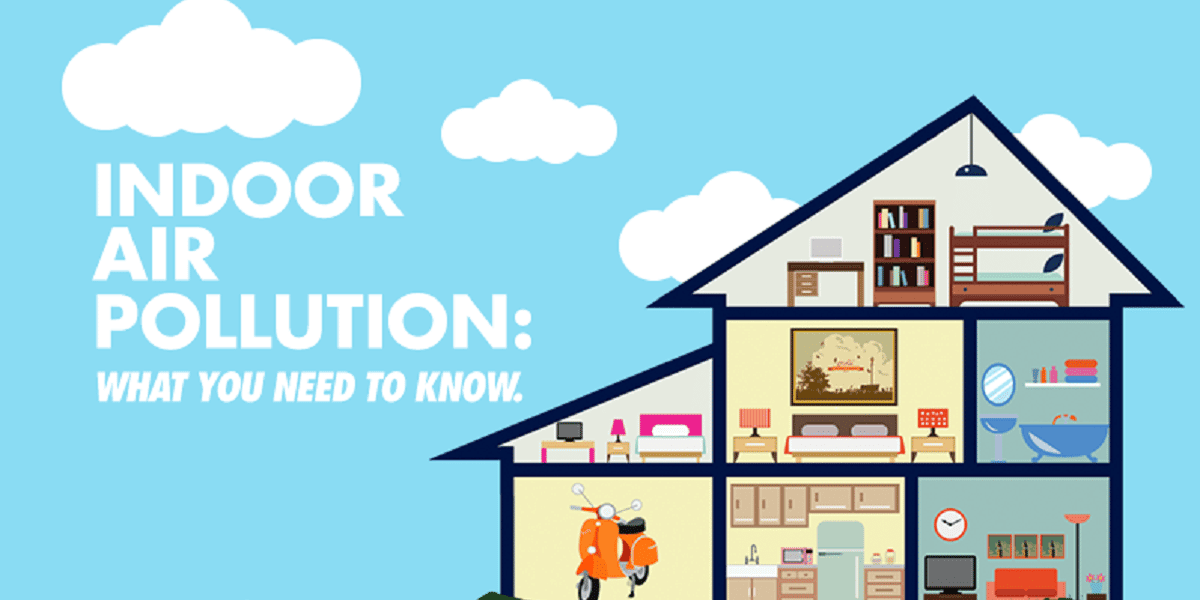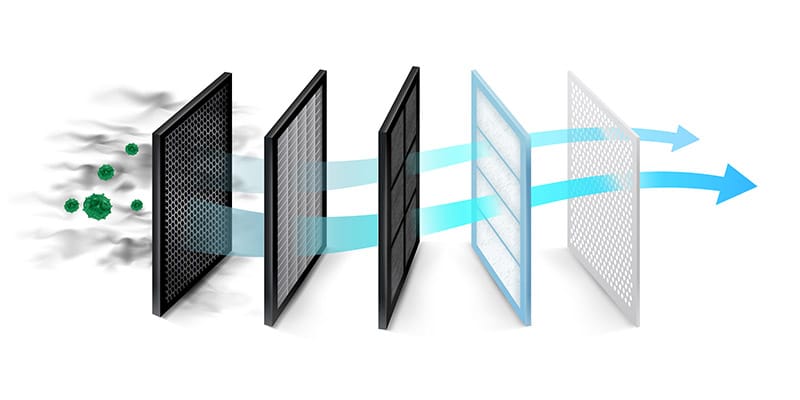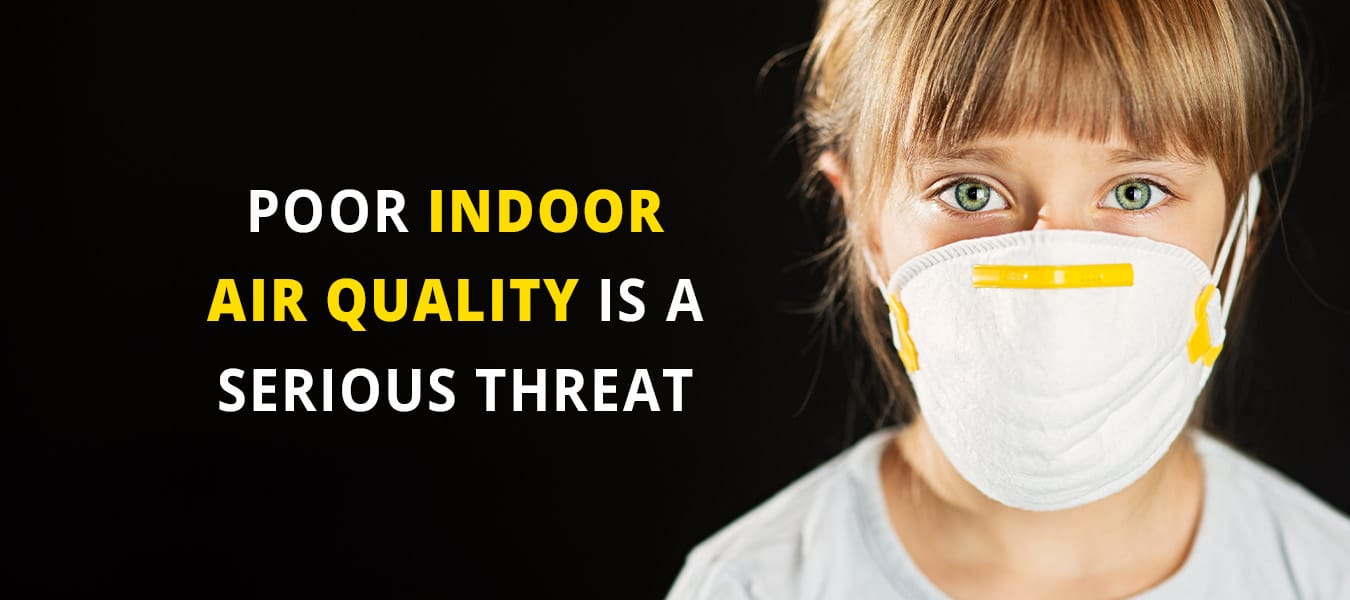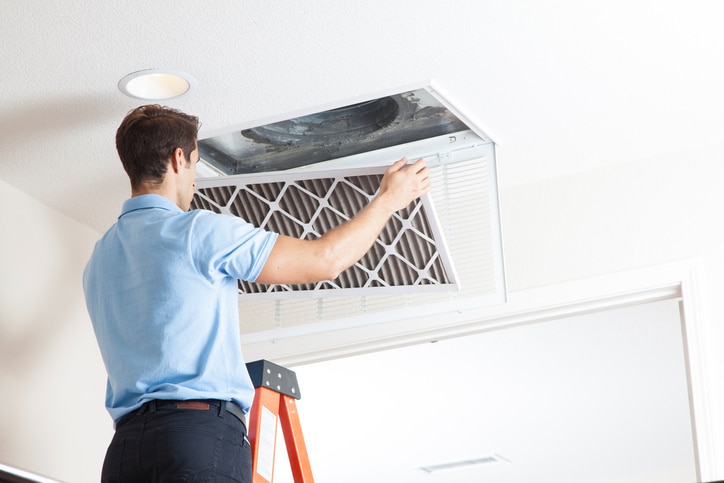
How Do AC units filter air?
Air conditioners work by drawing air from the room and circulating it through a filter. The filtered air is then cooled and circulated back into the room. While AC units are designed to improve air quality, they can have the opposite effect if not properly maintained.
For example, a dirty filter can circulate dust and other pollutants back into the room, while a clogged drain can cause water to back up and lead to mold growth. Therefore, it is essential to have your AC unit serviced regularly and regularly replace the filter.

Do HVAC systems have HEPA filters?
Yes, some HVAC systems have HEPA filters. These filters help remove contaminants from the air, making it healthier to breathe. In addition, HEPA filters can also help to reduce allergies and asthma symptoms. If you are concerned about the air quality in your home or office, talk to your HVAC contractor about installing a HEPA filter. You may also want to consider a whole-house air purifier, which can help to improve the air quality throughout your entire home.
Air conditioning and HVAC systems significantly impact the air quality in offices and other indoor spaces. To create a healthy and productive work environment, it is essential to understand how these systems operate and what you can do to improve air quality. We hope this article has provided some valuable information about air conditioning and HVAC systems to help you maintain a healthy workplace.

Award Winning Firm

Professional Workers

License & Insured
Can Poor air quality cause several health problems?
Poor air quality can cause difficulty breathing, headaches, dizziness, and nausea. In more extreme cases, it can cause respiratory illness and heart disease. Several factors can affect air quality, but the most important is the HVAC system. The heating, ventilation, and air conditioning system plays a vital role in regulating temperature and humidity levels and filtering out pollutants.
If the HVAC system is not maintained correctly, it can cause a humidity build-up, leading to the growth of mold and mildew. These can release spores into the air, which can cause respiratory problems. In addition, dust mites thrive in humid environments, and their feces can also trigger allergies.
Therefore, it is essential to ensure that the HVAC system is regularly serviced and replaced by filters. By taking these simple steps, you can help to improve the air quality in your home or office and create a healthier environment for everyone. We often take air quality for granted, but it can significantly impact our health.
So next time you're thinking about HVAC, think about the air quality in your home or office. Thanks for reading! We often take air quality for granted, but it can significantly impact our health. So next time you're thinking about HVAC, think about the air quality in your home or office. Thanks for reading! We often take air quality for granted, but it can significantly impact our health. So next time you're thinking about HVAC, think about the air quality in your home or office.

How do Air Conditioning and HVAC Affect the Air Quality in Rooms and Offices?
Did you know that the Air Conditioning and HVAC system in your office or building play a significant role in the air quality?
This article will explore how Air Conditioning and HVAC systems work together to control the humidity levels in a room. We will also discuss why it is essential to have a healthy level of humidity in the air and why humidifiers and dehumidifiers are often mounted in Air Conditioning and HVAC systems.

How does air conditioning affect air quality?
Air conditioning works by circulating and filtering the air in a room. The Air Conditioning and HVAC system in your office or building play a significant role in the quality of the air you breathe. Air conditioners remove dust, pollen, and other airborne particles from the air, which improves air quality.
What is humidity?
Humidity is the amount of water vapor in the air. Air can hold a certain amount of water vapor, and when that limit is reached, the air is said to be saturated. The temperature at which air becomes saturated is called the dew point. When the air temperature drops below the dew point, water droplets will condense out of the air and onto surfaces. Therefore you see water droplets on the outside of a cold drink on a hot day.
Why is it essential to have a healthy humidity level in the air?
Having too much or too little humidity in the air can cause health problems. Dry air can cause nosebleeds, static electricity shocks, and dry skin. Air that is too humid can cause mold and mildew to grow and make it difficult to breathe. The ideal humidity level for a room is between 30-50%.
Humidifiers and dehumidifiers are often mounted in Air Conditioning and HVAC systems.
Humidifiers add water vapor to the air, and dehumidifiers remove water vapor from the air. By controlling the humidity levels in a room, Air Conditioning and HVAC systems can help to improve air quality and keep people comfortable.
If you have any questions about Air Quality or HVAC systems, please contact us. (847) 322-0554


